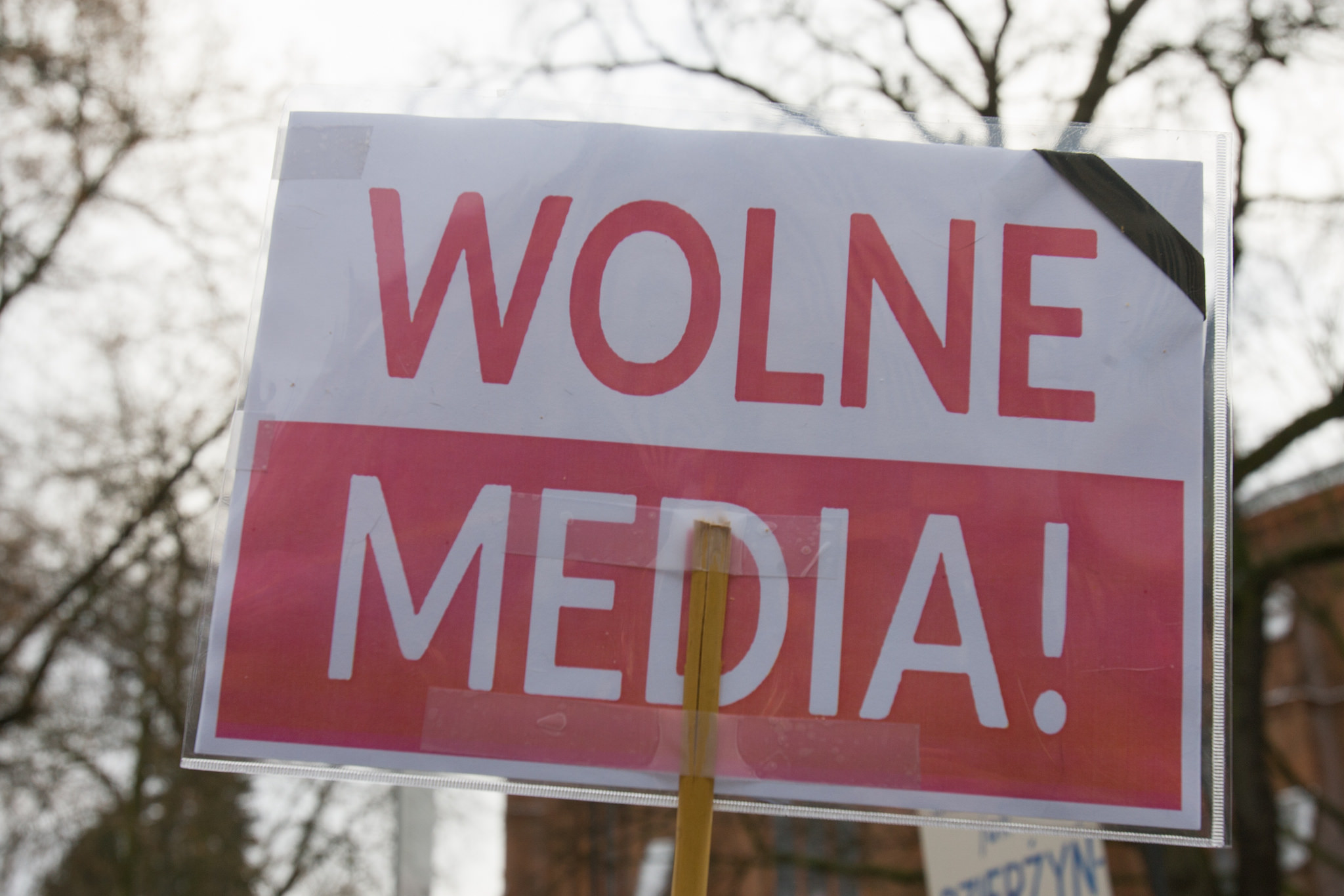A law amendment being proposed by the Kyrgyz government risks completely eroding the limited independence of the public broadcaster, OTRK.
The fundamental definition of the OTRK as public service media is in the balance, with a proposed law threatening to effectively turn the corporation into a government mouthpiece. On October 23, the President of Kyrgyzstan, Sadyr Japarov, claimed the OTRK was not fulfilling its responsibilities. He used this as justification for the incoming amendment to the bill “On the Kyrgyz Television and Radio Broadcasting Corporation”. The law, if passed, will change the definition of the OTRK from “public television channel” into a “national state agency”, according to a report by the CPJ.
It comes at a time of significant legislative upheaval for the state, with the government identifying 359 laws which need to be at least partially re-written or amended. The law which defines the OTRK is near the top of the list.
“The government justified the impossibility of developing a public broadcaster by the fact that the channel is financed from the state budget, so instead of strengthening the guarantees of institutional and financial independence in the current law, it decided to remove the status of a public broadcaster,” Nadezhda Alisheva from the Kyrgyzstan-based organisation Media Policy Institute (MPI) told PMA.
“With the adoption of the new law “On the Kyrgyz TV and Radio Broadcasting Corporation,” the activities of the channel will return to the previous legal norms – about state television, which were in the early 90s and existed until 2010, when state television was replaced by public television.”
“The consequences are obvious: the channel will be even more vehement in its coverage of only the government’s position and one-sided, often unreliable information about its critics, be they politicians, journalists, or activists” – Nadezhda Alisheva, Media Policy Institute
Additionally, as a result, the President would be given the responsibility of appointing the corporation’s chief executive. Currently, that responsibility falls to the Supervisory Board – a group of 15, five of which are selected by the President, five by the parliament, and the remaining five by civil society.
The law presents a grave threat to the OTRK, and if passed, would be a terrible outcome for the corporation and for democracy at large in Kyrgyzstan. This bill is a contradiction to President Japarov’s recent comments at the UN General Assembly, where he said the country “will not turn from the democratic path.” Indeed, that sentiment does not align with the government’s actions over the past year, where there have been efforts to stamp down on a free and independent press.
This year, for the first time, the country has been labelled as “not free” by the NGO Freedom House amid a backdrop of political turbulence. Under the current president, in July, a controversial bill passed through Parliament which, in name, is designed to tackle fake news, but in practice, could be used to censor and block an independent press. There are further plans to shake up media legislation, but the Independent Union of Journalists has called for a pause to these discussions, arguing they are not worth changing, and that any attempts to do so should be done in consultation with journalists.
The broader picture of Kyrgyzstan was summed up by Colleen Wood from Columbia University’s Political Science Department. She wrote in The Diplomat that there is state hostility towards “journalists, toward citizens asking questions, and toward experts critiquing the government. … The fact that Japarov and others in charge are institutionalising this hostility through changes to Kyrgyzstan’s constitution and legal code is even more disconcerting.”
To defend OTRK from any changes, an appeal against the law was lodged by some members of the media community in Kyrgyzstan. They argued that if the bill was passed, it would remove “the established democratic principles in the current law.” According to media expert, Avlanbek Dzhumabaev – who signed the appeal – “There will be no benefit from turning it into a state channel. The main danger is that [it] will begin to provide one-sided information and only cover the position of the authorities.”
Ms Alisheva from MPI agreed. “The Kyrgyz Republic has more than a dozen state-owned media outlets that already promote state policy. Another government-controlled television channel will be added to this list. The consequences are obvious: the channel will be even more vehement in its coverage of only the government’s position and one-sided, often unreliable information about its critics, be they politicians, journalists, or activists.
“We believe that the Institute for Public Broadcasting is critically needed in our country so that there can be a plurality of voices and opinions in society, so that citizens have alternative information to state broadcasting. An independent public television channel is an indicator of a healthy democracy in the state, which cannot yet be said of our country.”
A number of media freedom organisations under the umbrella group IFEX have all signed a letter calling on the Kyrgyz government to “withdraw the legislation in its current form.” The signatories include the Afghanistan Journalists Center, the Palestinian Center for Development and Media Freedoms, and the Pakistan Press Foundation.
Header image: Bishkek, Kyrgyzstan – victory square in Bishkek with on the background snow covered mountains. Credit: Daniele Aloisi / Shutterstock.com
Related Posts
8th January 2021
Poland: Media independence and pluralism under threat from state-backed companies
Growth in ownership by state-backed…


